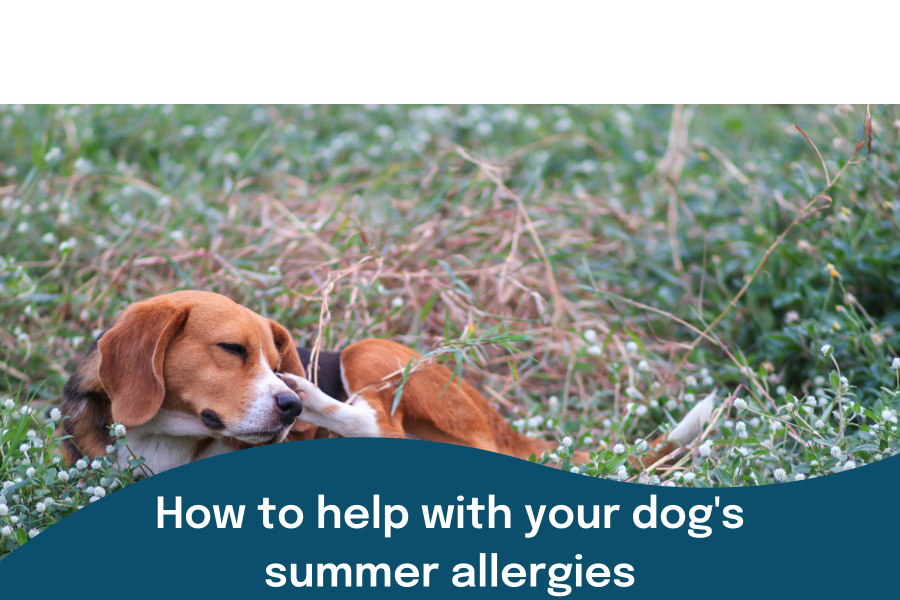
Signs your dog has summer allergies (and 5 tips to help them)
|
|
Time to read 3 min
|
|
Time to read 3 min
When summer’s here, we all celebrate! Fun times enjoying the warmer weather, longer evening walkies with your furry bestie and loads of garden play. But for many dogs (and humans) it comes with a price tag: allergies!
Today you’ll discover some useful tips for both recognising the typical behaviours that your dog has allergies, and what to do to help them.
If your dog’s behaviour changes during certain times of the year, that’s a good sign that they’re reacting to something - often, it can be allergens in the air. If you dog has summer allergies, they could be showing signs like:
Unsurprisingly, grass pollen is the main trigger for irritating your dog’s allergy reaction during the summer months. It’s at its “worst” during May to July, and even August.
During the Springtime, it’s tree pollen that can cause, or contribute to allergic reactions in your dog.
Now that you’re aware of the main cause of summer allergies in your dog, here are our 5 tips to help you help your poor pooch this summer:
Before you head out, consider checking via an app on your phone what the day’s pollen count is likely to be. Pollen is a common trigger for allergies so when the pollen count is high, ensure that your walks are early morning or early evening as this is when pollen count is likely to be at its lowest during the day.
If you know this could be the prime trigger for your dog’s summer allergies, then try as much as possible to avoid grass on your daily walkies. It’s actually a great opportunity to do some exploring and check out some exciting new routes that don't involve much grass! Why not find a local woodland walk to try in the cool or head to the beach in the evening so you and your dog can enjoy the sand and waves?
Look, coming into contact with grass during a walk with your dog is inevitable. It's always best to try and get rid of as much grass and pollen as possible so it's left outside and not walked into the house. Ensure when you’re home you give your dog a wipe with a damp cloth (including their paws) to remove excess pollen caught on their fur. It’s also a nice experience for you both.
Even if you’ve tried these things to prevent your dog from itching, it’s not always enough. Why not try some skin balm to apply to their itchy skin? Another alternative is to give your dog probiotics such as Super Tummy Daily powder or Super Tummy Daily chews. Probiotics are great not only for your pooch's digestion but the ‘good’ gut bacteria in them help support healthy skin and healthy yeast production to avoid itchy ears and paws.
Salmon oil is another fab supplement to give to your four legged friend as the Omega fatty acids help hydrate their skin, making it less itchy. Plus it can make their coat super shiny too!
This one’s quite easy to overlook. But it makes sense that pollen can fall off your dog’s coat and onto their bed, which can cause discomfort by prolonging the itching. Regularly washing and vacuuming their bed will ensure you prevent this pollen spread and “itchy cycle”.
We hope you’ve found those tips helpful, since they’re designed to be easy ones that could make the world of difference to your dog. Dog summer allergies are no fun, so help them avoid those itchy, irritable symptoms so that they can enjoy more time with you.